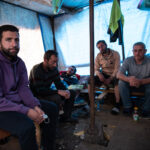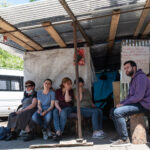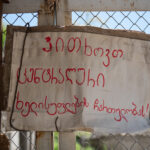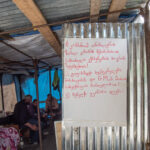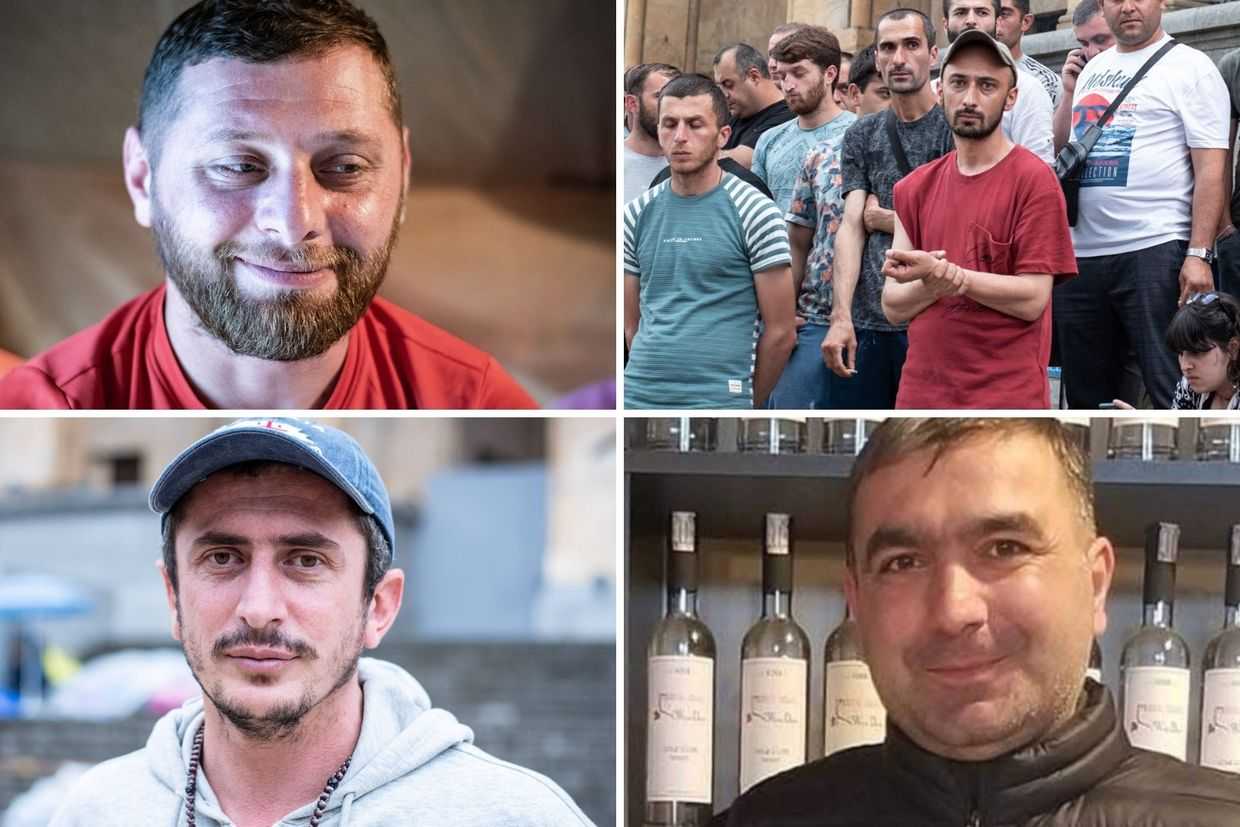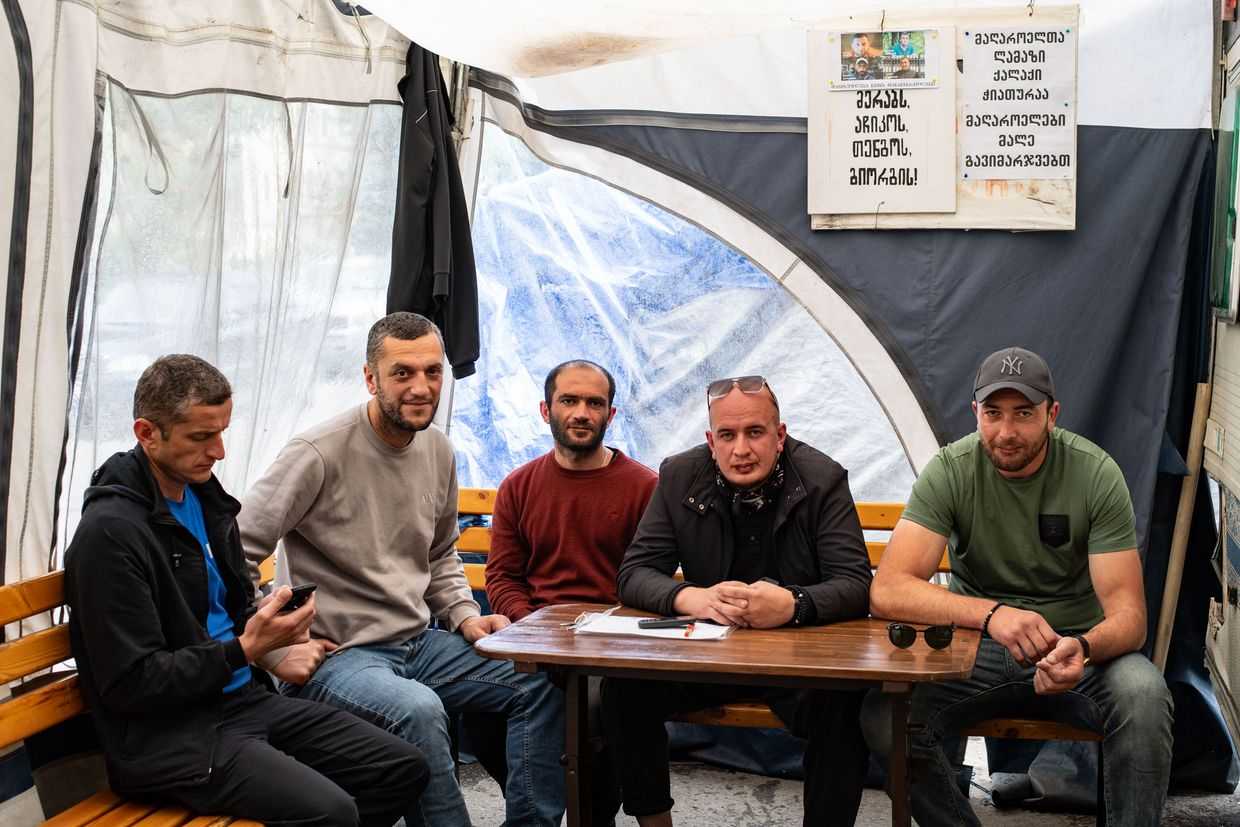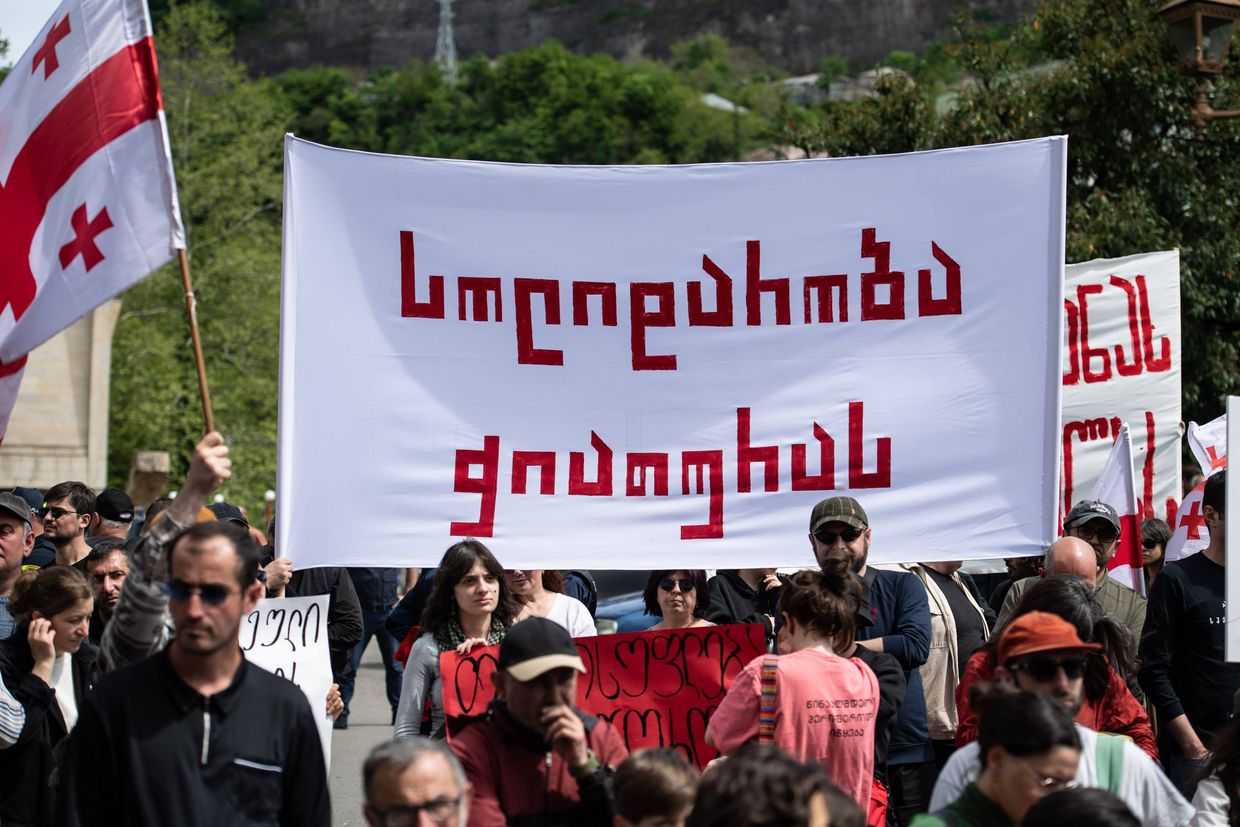
In a village on the outskirts of the Georgian mining hub of Chiatura, people have begun to sew shut their lips in an extreme form of hunger strike. As the mining continues under their feet, the houses in Shukruti are collapsing, and local residents say that neither the mining company nor the government is listening.
Vera Kupatadze rejoined the protests in Shukruti on 16 February, but she says the mining in Chiatura has been affecting her and her family’s lives for decades.
‘We built this house during very difficult days — we were practically starving — and now it’s being destroyed again. I was born and raised in Shukruti. My parents fought this fight without seeing any results. Now I have to fight the same fight.’
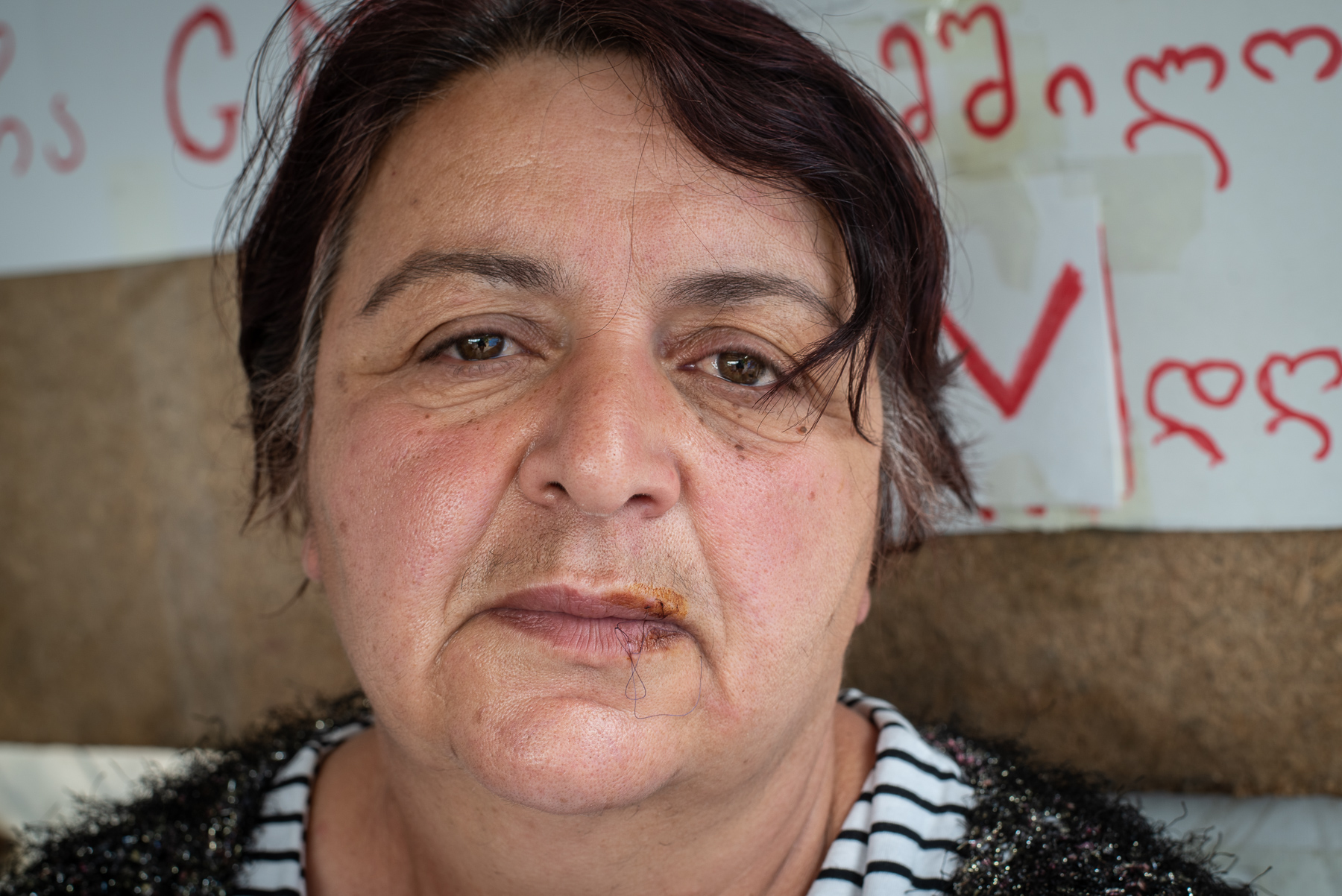
When her parents’ house collapsed in the early 2000s, Vera says, they did not receive any compensation and the family was forced to build a new house from scratch.
‘And they resumed mining underneath our village again and the house got damaged again’, she says, adding that two large families live in the house.
Since the latest round of protests started two years ago, she says no officials have approached her family.
‘It is a complete injustice. Is this the government we had hopes for? No one comes to us from the government’.
Ten residents of Shukruti are now on hunger strike, and five men and three women have sewn shut their mouths.
Local residents are demanding compensation from Georgian Manganese, the company that owns and operates the Manganese mines in Chiatura. They are also asking that the government step in to properly assess what is happening in the village, as they do not trust an audit conducted by the company.
In response to the latest protests, Georgian Manganese said they were willing to work with the Samkharauli National Forensic Bureau to assess the situation only if ‘the negotiations with the protesters, that are in a deadlock, will move into a legal framework and the justice system will resolve the disagreement’.
[Read on OC Media: Shukruti residents sew lips shut to demand compensation]
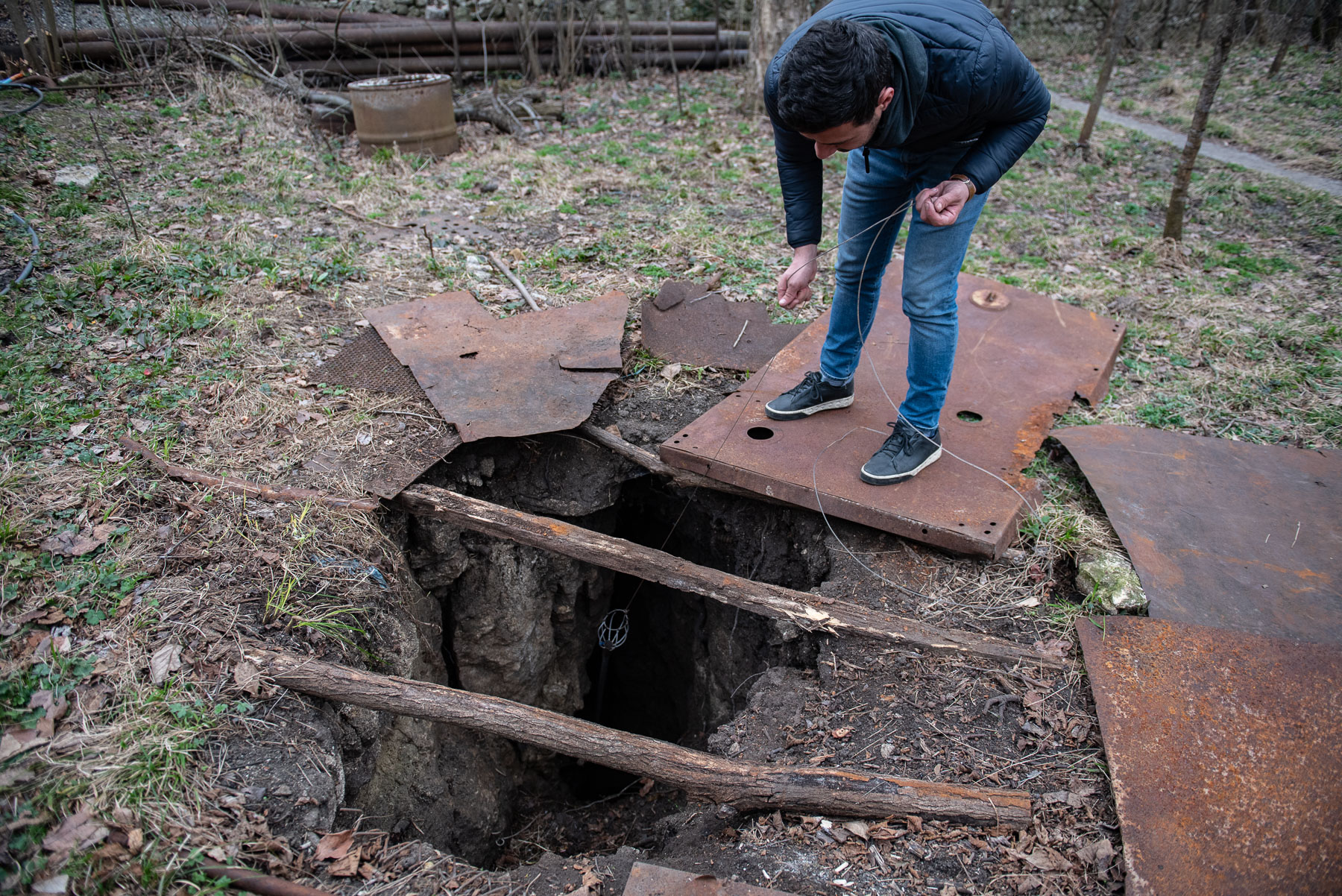
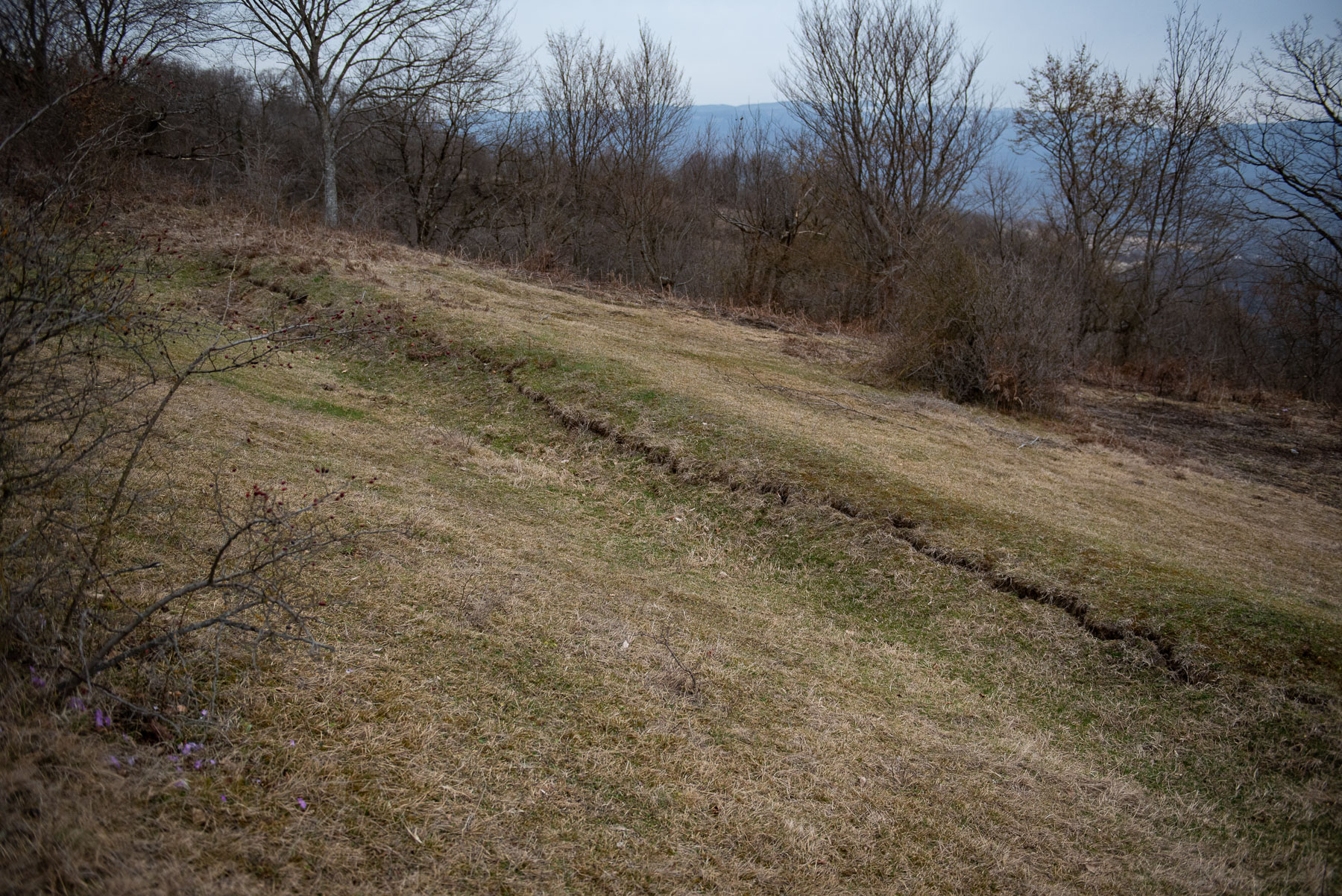
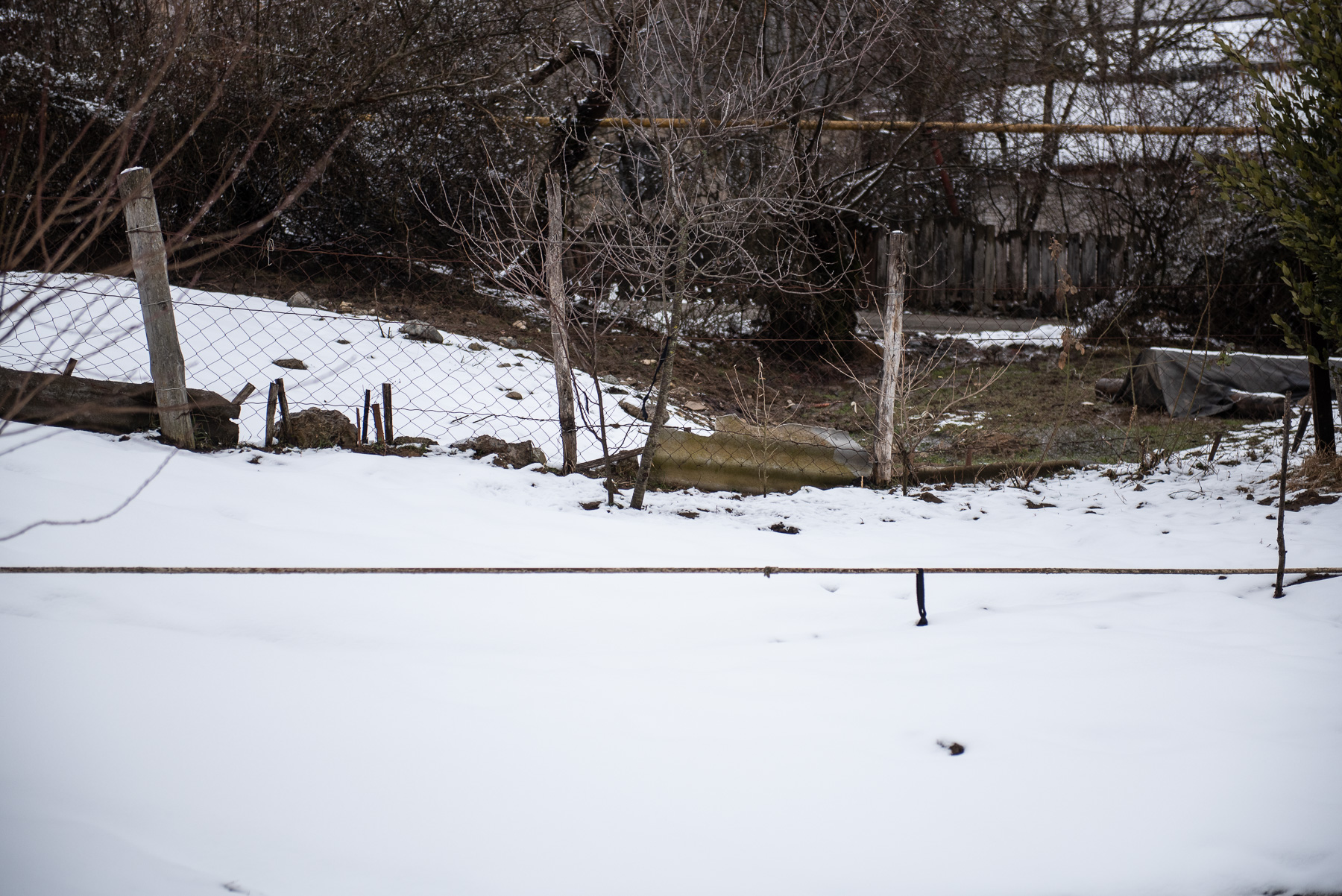
The company declined numerous requests to clarify further.
Considering their experience over the past two years, the protesters remain sceptical that the company will keep their word this time.
